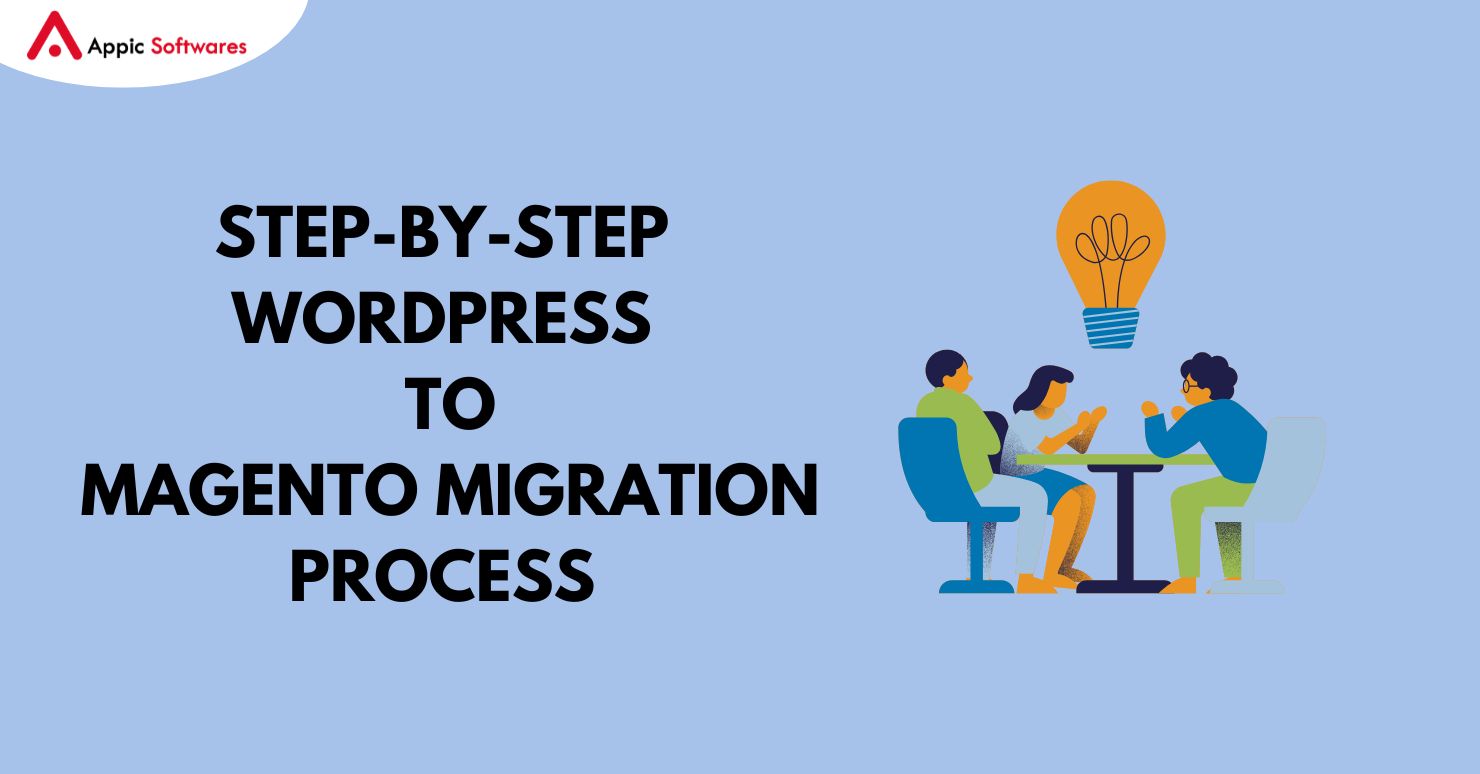
Is your WordPress website struggling to keep up with your growing product catalog, complex store functionalities, or customer expectations? If yes, it might be time to upgrade your eCommerce platform, and Magento (now Adobe Commerce) is a powerful option that offers better performance, scalability, and customization.
However, migrating from WordPress to Magento isn’t just about copying data from one platform to another. It requires planning, technical expertise, and a structured process to ensure that your data, design, and SEO rankings are preserved.
Doesn’t your Magento platform manage the current product enough? Do you need a scalable platform for your E-Commerce needs?
Step-by-Step WordPress to Magento Migration Process

1. Magento Installation and Server Setup
We start by installing Magento on your server with the right configurations to handle your current and future traffic needs securely.
2. User Role Configuration
Your existing WordPress user roles and permissions are carefully replicated within the Magento admin panel for continuity.
3. Designing the Magento Storefront
We design a new or similar layout to your existing store using Magento’s robust UI capabilities, including:
-
Product grids
-
Custom homepage
-
Search an d filter tools
-
Shopping cart layout
4. Content Transfer
All your pages, blog posts, and static content from WordPress are manually migrated to Magento to retain your SEO rankings.
5. Manual Layout Setup
We build your:
- Header & navigation menu
- Logo & banner slider
- Footer and contact sections in the Magento CMS.
6. Product Export & Import
Product data, including names, descriptions, categories, images, prices, and stock, is exported from WordPress into a structured Excel format and then imported into Magento.
7. Order & Customer Migration
We use export plugins to move all existing orders, customer details, and category structures to the Magento environment.
8. Shipping Configuration
Shipping methods and rates are set up manually in Magento based on your existing setup.
9. Payment Gateway Integration
We integrate the same or better payment gateways (PayPal, Stripe, Razorpay, etc.) to ensure smooth transactions.
10. Add-Ons & Custom Features
We replicate or enhance your WordPress features in Magento, including:
- Newsletter subscription
- Contact forms
- Social media integration
- Live chat
We can even add Magento-exclusive features like brand filtering, layered navigation, and performance analytics.
11. Testing & QA
We thoroughly test your Magento store’s functionality, performance, and responsiveness before going live.
Read more: Step-By-Step WordPress To React Migration Guide
Benefits of Migrating from WordPress to Magento
- Greater performance & page load speed
- Advanced product & order management
- Better scalability as your business grows
- More secure payment and checkout system
- Fully customizable design and layout options
- Multi-language and multi-store support
Final Thoughts
If you have any queries feel free to contact Appic Softwares.
FAQs
1. Will my SEO ranking be affected during migration?
Not if it’s done right. At Appic Softwares, we ensure that URLs, meta data, and redirects are properly handled to preserve your SEO during the migration to Adobe Commerce stores. We take extra care to maintain your site’s search engine visibility and traffic throughout the transition.
2. How long does the migration process take?
Depending on the complexity of your site, the process typically takes 2 to 4 weeks. This includes planning, development, testing, and deployment.


